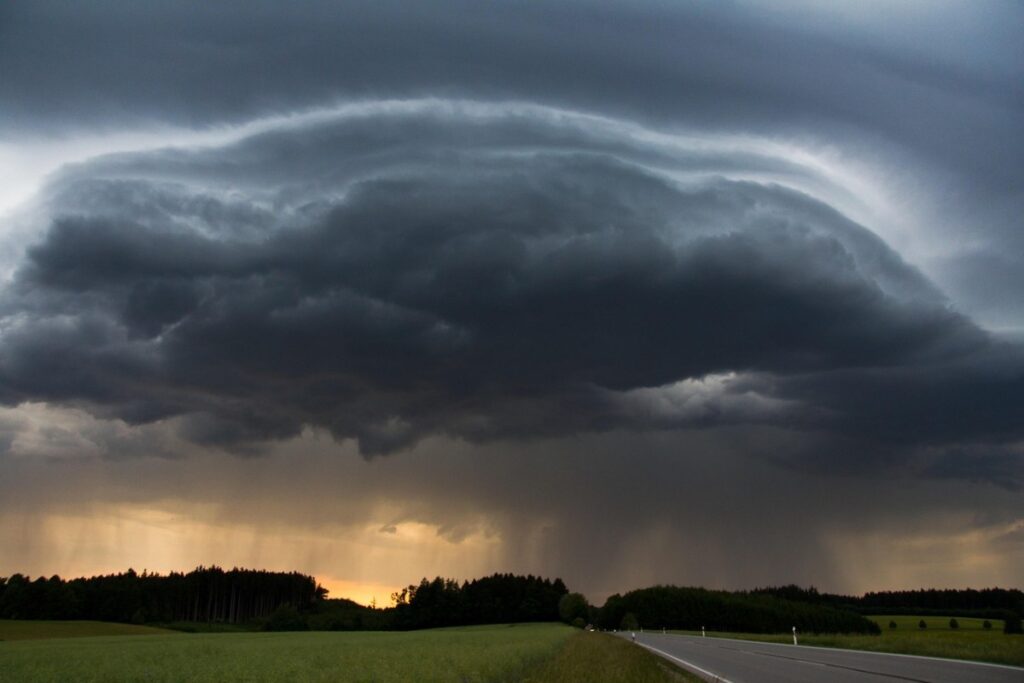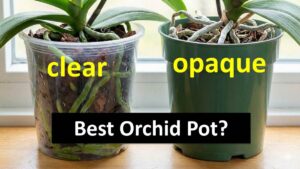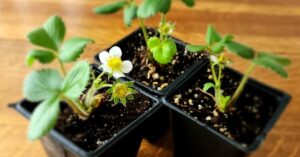Looking for Rain – Rethinking the Way forward for our Gardens

By Emma Murphy, Grasp Gardener
Warmth. Humidity. Thunderstorms however no actual rain. Dry soil.

What I wouldn’t give for every week of stable, constant rain in our gardens. After the March ice storm, adopted by a cool, moist spring and excessive water situations till Might, Mom Nature turned the water faucet off and we haven’t had stable rain for what appears like months.
I not often should water our established perennial gardens, that are a mixture of native and non-native vegetation, however this month has been the exception.
So it’s time to consider the longer term. What can we accomplish that our gardens survive (and thrive) throughout future dry or drought situations?
Preserve Wholesome Soils
Good soil is the muse for good plant progress. Something you’ll be able to add to your soil like compost or different natural matter will make it simpler for roots to penetrate deeper, creating extra expansive root techniques that may search out water and vitamins. Take a look at Grasp Gardener Sharleen Pratt’s earlier weblog.
The consequence? More healthy, extra drought-resistant vegetation. Good soils are higher capable of soak up floor water runoff, reduce erosion, and entry vitamins and sediments.

Suppose About Future Plant Choice
Consider your vegetation for his or her resistance to dry situations or drought; search for new vegetation (hey, who doesn’t need extra vegetation?) which are recognized as drought-tolerant or drought-resistant. Group vegetation in keeping with how a lot water they want. Ask your native backyard centre or nursery workers which vegetation they suggest.
Contemplate incorporating extra native vegetation, which typically adapt higher, have decrease water calls for, and fewer pest issues, plus after all the various advantages they supply to our pollinators and wildlife. In Our Nature has some nice concepts.

Use Mulch
Mulch reduces evaporation, moderates soil temperature, and inhibits weed progress. It’s estimated that three quarters of the rain falling on naked soil is misplaced to vegetation by evaporation and runoff.
Use compost, wooden chips, bark nuggets, shredded bark mulch, shredded leaves, or some other natural materials to cowl the floor of the soil at the very least 5 cm in thickness. Extra data and a deeper dive right here.

Water Properly
Lengthy, deep watering encourages roots to go deep down within the soil to the place it’s moist and quite a bit cooler. Water much less often however for longer durations, so water reaches deep into soil. Good thorough watering promotes more healthy vegetation.
Water solely when needed. Most vegetation will usually wilt in sizzling solar after which get well when watered. Additionally, a dry floor just isn’t all the time an indication of water want. The floor typically dries out first and isn’t a real indicator of what’s going on down deep close to the plant root. Make use of a hand trowel or your fingers to test for moisture.

Weed Administration
Weeds will compete along with your vegetation for moisture and vitamins. Maintain your gardens and areas beneath timber and shrubs weed free. As soon as the weeds are eradicated, apply mulch.
Contemplate Alternate Water Assortment and Distribution Strategies
Water harvesting is an effective way to make use of water from your own home’s roof and direct it onto the panorama, the place the soil turns into your “holding tank.” The very best instance is utilizing a rain barrel – we have now varied rain barrels and tanks in our backyard and they’re an important funding.
You can too apply ‘passive’ water harvesting by creating depressions that fill with water from the roof runoff or formal rain gardens, each of which assist with stormwater runoff points. Peterborough Greenup Rain Program
Examine use of soaker hoses or different irrigation methods utilizing timers, which hold water on the soil and cut back losses by evaporation. Alter watering frequency and quantities primarily based on season, temperature, and quantity of rainfall. Overhead watering makes use of extra water and encourages fungal illnesses.

Observe Water Conservation In every single place
Not simply in your gardens. Water is our most beneficial useful resource. Learn to cut back water use all through your own home and gardens. The Easy Information to Water Conservation and Make Each Raindrop Depend.






